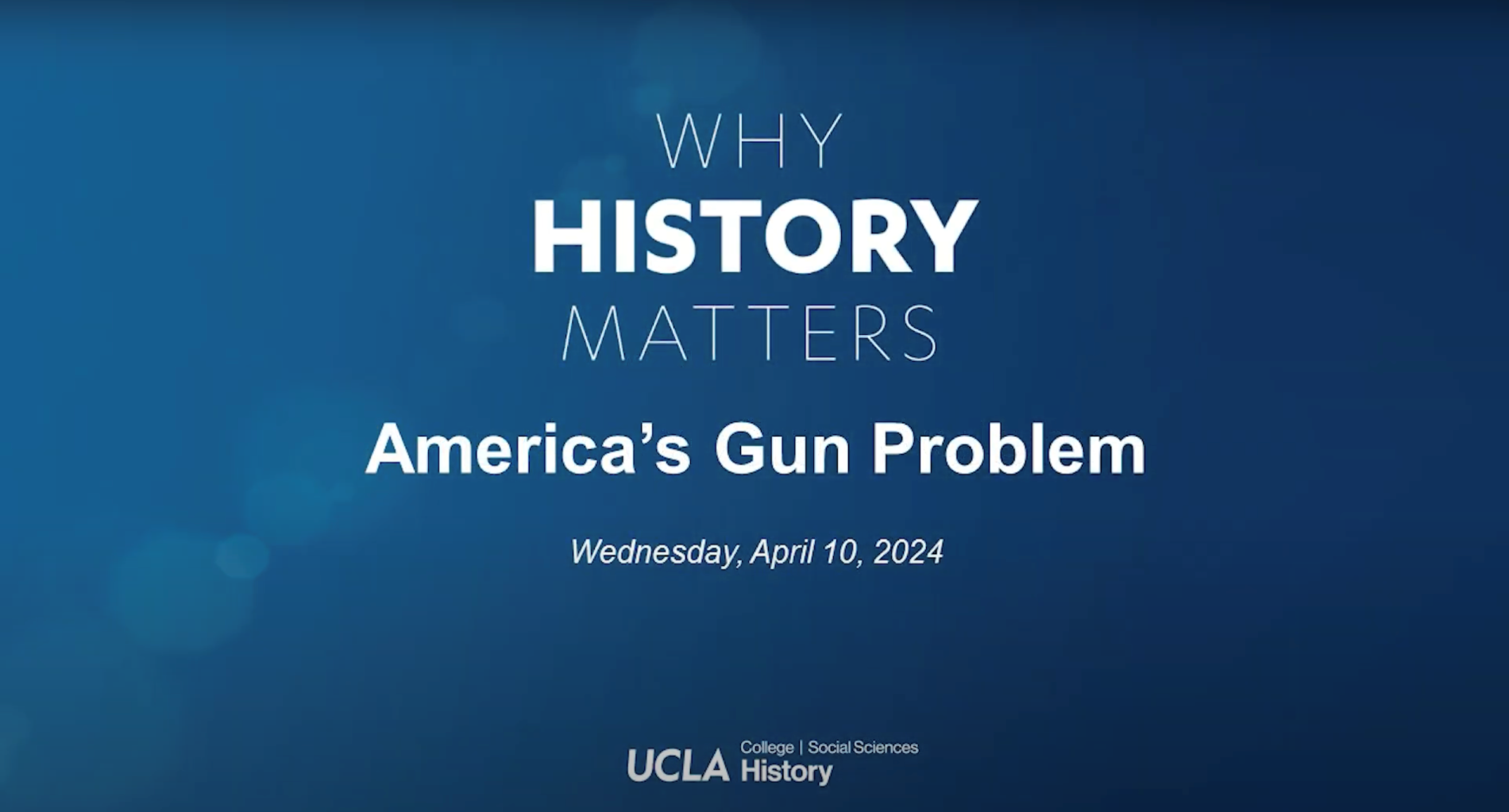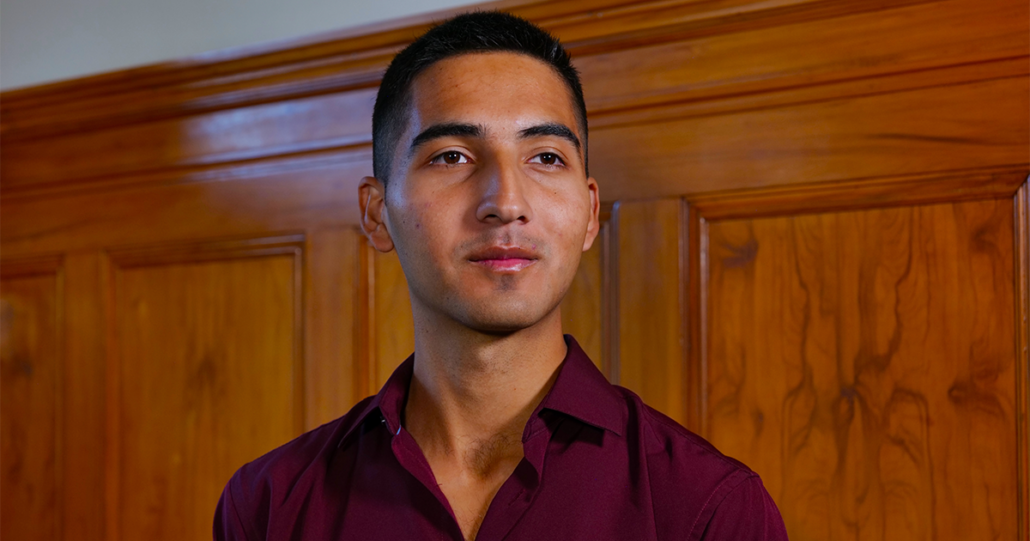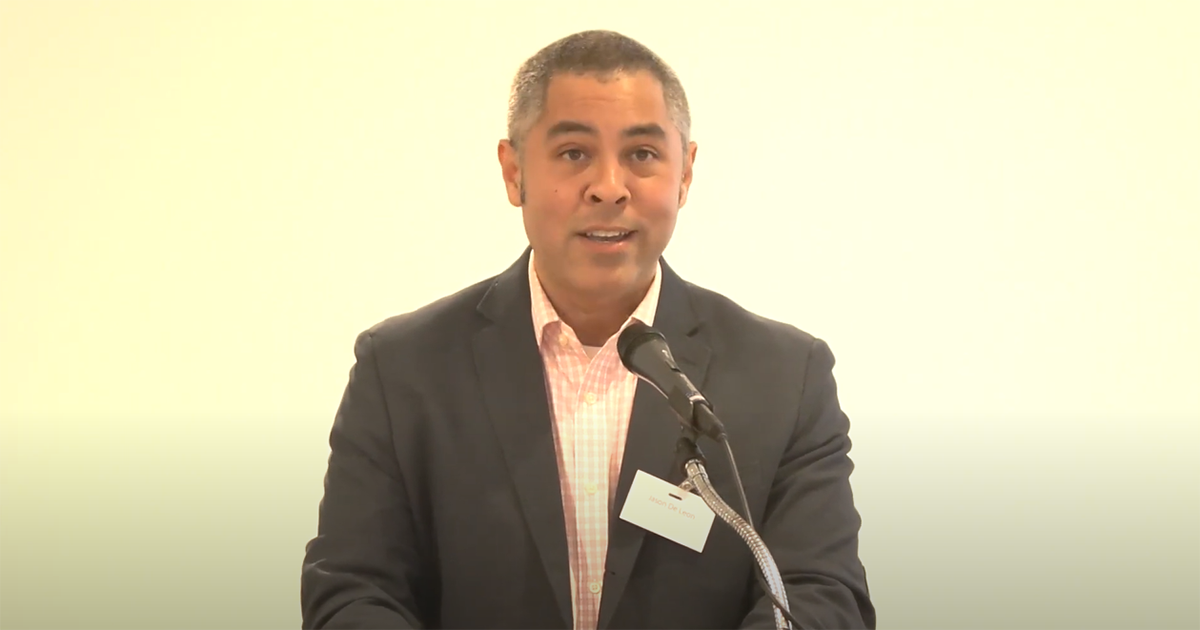UCLA History’s “Why History Matter” series presents




By Kayla McCormack
Diego Sarmiento, a third-year political science major and public affairs minor, has won the Truman Scholarship. This marks the first time since 2009 that a UCLA student has been selected for this award.
The Truman Scholarship is awarded to college juniors committed to careers in public service. In addition to extensive support from the foundation, advising and mentoring opportunities, the scholarship provides up to $30,000 to fund graduate study.
“I see the Truman Scholarship as an investment in my future. I see this as the scholarship committee saying, ‘I see potential in you,’” says Sarmiento. “I just want to prove them right. It’s an honor to receive this award, but it’s also a privilege and I don’t plan to take that for granted.”
Originally a mathematics and economics major, his involvement in grassroots movements and local policy initiatives in his hometown of Santa Ana ignited his passion for political science and social justice, inspiring him to switch his major.
Reflecting on his journey, Sarmiento remarks, “Policy is so powerful, and it affects my life, my neighbors’ lives, and the lives of countless others. My local community-organizing work opened my eyes to the transformative potential of policy.”
Throughout his undergraduate studies, Sarmiento has continued to work in his local community advocating for various causes, from rent control ordinances to youth empowerment initiatives. He worked on a homeless prevention program at the Orange County Board of Supervisors, which provides $400 a month to 100 single-parent households and senior citizens on the brink of homelessness and eviction. His hands-on experience in community organizing and local policy, coupled with his academic pursuits, has equipped him with a unique perspective on bridging the gap between academic theory and grassroots activism.
Sarmiento plans to pursue a joint J.D. and master’s in public policy. Beyond graduate school, he hopes to dedicate his career to addressing systemic injustices and amplifying the voices of marginalized communities, particularly focusing on economic justice and reforming the influence of money in politics.
This fall, he’ll be running the Santanero Voter Initiative to mobilize Latinx youth voters in Santa Ana. After graduation in 2025, he plans to participate in the Truman Scholarship’s Summer Institute in Washington D.C. before starting graduate school.
As Sarmiento embarks on the next phase of his academic and advocacy journey, he’s hopeful about effecting change in the future.
“Change may be difficult, but it is possible,” he affirms. “Starting at the local level and building meaningful connections within communities can create change locally. And over time, that has the potential to snowball, grow and create an even bigger impact.”
For additional information about the Truman Scholarship or Strauss Scholarship, contact the Center for Scholarships & Scholar Enrichment.
This article originally appeared on the UCLA College Website.


By Alvaro Castillo
While many things may have changed over the first half century of the UCLA Cotsen Institute of Archaeology, its key mission has not, according to attendees of the anniversary celebration in March.
Jason De León, institute director and professor of anthropology and Chicana/o and Central American studies, opened the program by quoting founding director and professor emeritus of history and Near Eastern languages and cultures Giorgio Buccellati’s initial 1974 report.
“‘We are creating here at UCLA something which is in line with the best archaeological truth and tradition, and yet is unique on the American scene…a comprehensive, interdisciplinary reconstruction of the human past,’” said De León. “‘We are truly an institute of archaeology writ large without parochial limitations of geography or methodology.’”
As attendees applauded the sentiment, De León added, “I think [these words] very, very much still ring true.”
Noting that appointing De León to the directorship last November was “one of the most important things that I’ve done in my role,” Abel Valenzuela, interim dean of the division of social sciences, shared his admiration for the institute.
“From a small group of passionate volunteers evolved an organized group of friends of archaeology who through their own sheer force of will and dedication began creating programs and events, one of the purest examples of the power of community, multidisciplinary, interdisciplinary communities,” he said. “My thanks to everyone, past and present, who dedicated themselves to making the Cotsen Institute what it is today.”
Several of those luminaries spoke at the event, including Stephen Acabado, chair and professor of archaeology, as well as former institute directors and professors emeriti Buccellati, Merrick Posnansky (anthropology and history), Charles Stanish (anthropology) and Willeke Wendrich (Near Eastern languages and cultures). Another milestone was celebrated as well, when Thiago Puglieri, assistant professor of art history and conservation of cultural heritage, spoke on behalf of the UCLA/Getty Interdepartmental Program in the Conservation of Cultural Heritage reaching its 20th anniversary.
Thanking the speakers as well as everyone who had played a role in the ongoing story of the institute, De León closed the event by affirming how vitally important the institute had been to his own life, from a “lost kid with a green mohawk hiding under a baseball cap” applying for a work study position in the late Professor Jeanne Arnold’s lab to now being in charge of it all.
“When I say that I’m humbled, that’s an understatement of epic proportions. … I come to this position with a commitment to honoring the legacy of the place while building on the work of my wonderful predecessors,” De León said. “Every day that I’m able to walk into that building with the one window, I am reminded how special that place is for our staff, for our students, for our faculty and all of our many visitors who get excited and inspired by this thing that we call archaeology and all that it has to offer.”